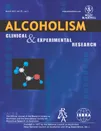| Titre : | Impacts of changing marijuana policies on alcohol use in the United States (2016) |
| Auteurs : | K. GUTTMANNOVA ; C. M. LEE ; J. R. KILMER ; C. B. FLEMING ; I. C. RHEW ; R. KOSTERMAN ; M. E. LARIMER |
| Type de document : | Article : Périodique |
| Dans : | Alcoholism: Clinical and Experimental Research (Vol.40, n°1, January 2016) |
| Article en page(s) : | 33-46 |
| Langues: | Anglais |
| Discipline : | SAN (Santé publique / Public health) |
| Mots-clés : |
Thésaurus géographique ETATS-UNISThésaurus mots-clés LIBERALISATION ; CANNABIS ; ALCOOL ; POLITIQUE ; LEGALISATION ; SUBSTITUTION ; EVOLUTION |
| Résumé : |
ENGLISH:
Background: Marijuana policies are rapidly evolving. In the United States, recreational use of marijuana is now legal in 4 states and medical marijuana is legal in 23 states. Research evaluating such policies has focused primarily on how policies affect issues of price, access to, use, and consequences of marijuana. Due to potential spillover effects, researchers also need to examine how marijuana policies may impact use and consequences of alcohol. Methods: The current paper is a critical review of articles evaluating alcohol outcomes associated with marijuana decriminalization, medical marijuana legalization, and nonmedical or recreational marijuana legalization. We identified articles and reports through (1) online searches of EBSCO host database including Academic Search Premier, Econlit, Legal Collection, Medline, PsycARTICLES, and PsycINFO, as well as PubMed and Google Scholar databases; (2) review of additional articles cited in papers identified through electronic searches; and (3) targeted searches of state and local government records regarding marijuana law implementation. We reviewed studies with respect to their data sources and sample characteristics, methodology, and the margin of alcohol and marijuana use, timing of policy change, and the aspects of laws examined. Results: The extant literature provides some evidence for both substitution (i.e., more liberal marijuana policies related to less alcohol use as marijuana becomes a substitute) and complementary (i.e., more liberal marijuana policies related to increases in both marijuana and alcohol use) relationships in the context of liberalization of marijuana policies in the United States. Conclusions: Impact of more liberal marijuana policies on alcohol use is complex, and likely depends on specific aspects of policy implementation, including how long the policy has been in place. Furthermore, evaluation of marijuana policy effects on alcohol use may be sensitive to the age group studied and the margin of alcohol use examined. Design of policy evaluation research requires careful consideration of these issues. FRANÇAIS : Les politiques publiques à l'égard du cannabis exercent-elles un impact sur les consommations à risque et les conséquences de l'alcool ? Une revue critique de la littérature se prononce sur la complexité à établir une corrélation, en l'absence d'études randomisées et compte tenu de l'hétérogénéité des législations (nature des textes, temporalités, modalités d'implémentation...) et des variations observées selon les classes d'âge des usagers. L'impact de la libéralisation du cannabis récréatif et/ou thérapeutique ne serait pas univoque. L'accès au cannabis apparaissant comme un substitutif ou au contraire comme complémentaire (complementary effects) de la consommation d'alcool avec dans un cas une baisse des consommations, dans l'autre, une augmentation des consommations. Quelques données suggèrent dans le Colorado ou à Washington, qui ont légalisé l'usage récréatif de cannabis (LURC), une préférence des jeunes adultes pour le cannabis, qui reste à confirmer sur des échantillons plus importants tandis qu'aucun changement significatif n'a été enregistré en termes de taux de criminalité ou d'accidents de la route liés à l'alcool dans ces deux États. Quelques indices d'une association entre libéralisation du cannabis médical (LCM) et baisse des accidents de la route liés à l'alcool chez les jeunes adultes ont pu être relevés, avec des volumes totaux d'alcool consommés moins importants, tandis qu'on a pu observer également une baisse des consommations chez les jeunes. D'autres études en revanche ont observé un lien entre LCM et augmentation des consommations d'alcool à risque chez les adultes, en particulier si la législation est peu restrictive. [Actualités des addictions, 12/01/2016] |
| Domaine : | Alcool / Alcohol ; Drogues illicites / Illicit drugs |
| Sous-type de document : | Revue de la littérature / Literature review |
| Affiliation : | Social Development Research Group, School of Social Work, University of Washington, Seattle, Washington, USA |
| Lien : | http://dx.doi.org/10.1111/acer.12942 |
 Accueil
Accueil



